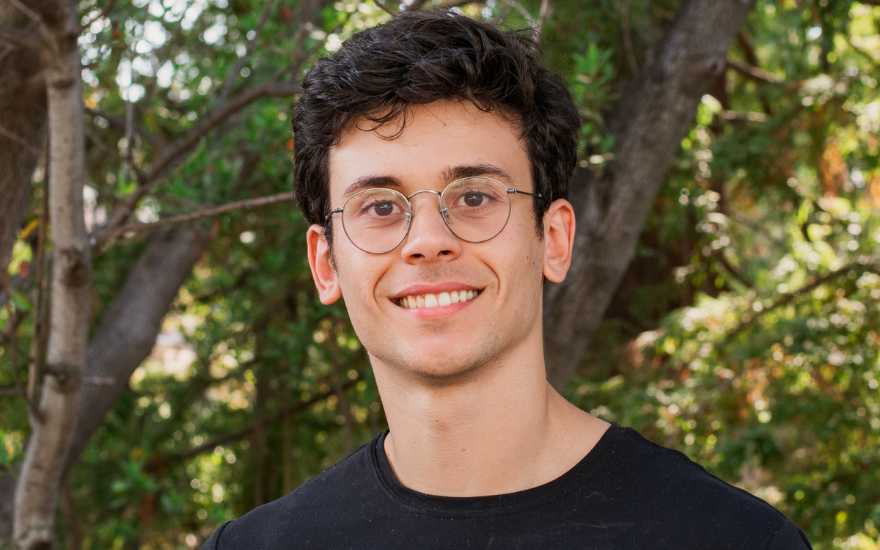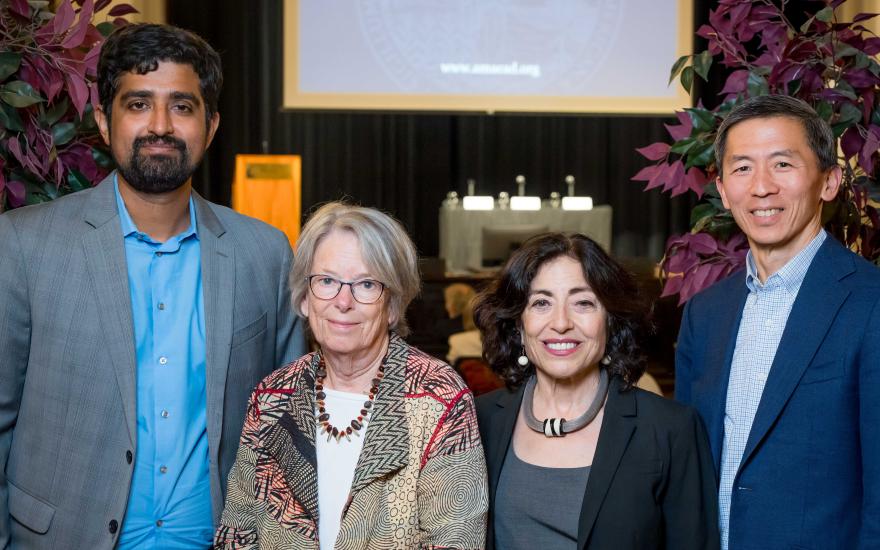Computer science is entering the clinic through a first of its kind graduate program from two of
the Bay Area’s foremost academic institutions.
The UCSF/UC Berkeley Joint Program in Computational Precision Health (CPH) welcomes its
second cohort of PhD students this fall. The program applies computing and AI advances to the
vast amounts of high-quality data that are generated in medicine, research and public health.
Students train concurrently in computer science and clinical or public health practice, uniting
disciplines that are usually studied in isolation.
The educational partnership combines UCSF’s top-tier clinical care, research and informatics
with UC Berkeley’s world leadership in computer science, engineering and statistics, as well as
the expertise in population health at both institutions. The students’ degrees will come from
both universities.
The diverse expertise within the CPH program means researchers developing AI for medicine
work closely with doctors who know the ins and outs of clinical care.
“By bringing attention to the realities of health care delivery, CPH’s training prioritizes
computational approaches that are both clinically useful and equitable,” said Ida Sim, MD, PhD,
UCSF’s Chief Research Informatics Officer.
Sim co-directs the program with Maya Petersen, MD, PhD, professor of biostatistics and
epidemiology at Berkeley. The program has five dedicated faculty with appointments at both
institutions, and nearly 70 affiliated faculty.
A new kind of PhD
The program’s first six students, who started in the fall of 2023, are predicting cardiac issues,
investigating bias in large language models and using computational approaches to analyze
provider notes for clinical decision making.
Another nine students started this year, drawn from a pool of more than 280 applicants.
Each student spends their first year rotating through computer science labs. The next year, they
are embedded in clinical and public health settings, where they mesh their research ideas with
the realities of clinical care.
Alex Schubert switched to CPH in 2023 from a graduate program in health policy at Berkeley to
focus on developing algorithms that can predict the risk of sudden cardiac death.
“The combination of UCSF’s clinical strengths and Berkeley’s AI expertise makes CPH one of the
best places for researchers like me, who want to advance the field of medical AI by focusing on
real-world clinical impact,” said Schubert, who works with CPH Assistant Professor Ahmed Alaa,
PhD, and Berkeley’s Ziad Obermeyer, MD, an associate professor of public health.
Adam Yala, PhD, is helping CPH students apply AI and machine learning to improve individual
cancer risk prediction and screening policies by analyzing mammograms, MRI images, family
history and clinical notes.
“What I want to impart to my students is that research in this field is about building bridges to
the future we want. We can forge partnerships and design methods that will change what’s
possible,” said Yala, who is a member of the Bakar Computational Health Sciences Institute.
“That self-actualizing spirit will increase the impact and joy of their research down the line.”

AI in the clinic
One of the obstacles to bringing AI into the clinic has been the need to integrate the vast array
of forms the data take, from electronic health records and public health data to information
from wearables that often run on proprietary algorithms.
Working with Fernando Perez, PhD, the faculty director of the Berkeley Institute for Data
Science, Sim aims to develop a secure, open-source platform for aggregating such data while
maintaining privacy.
Over the next two years, the technology, which they call JupyterHealth, will be piloted through
the UC Berkeley College of Computing, Data Science and Society’s Agile Metabolic Health
project, an initiative to incorporate data from blood pressure devices and continuous glucose
monitors for patients with metabolic health issues.
The team plans to bring the platform to UCSF’s diabetes and weight management clinics, as well
as to the new primary care clinic at 1600 Divisadero, where Sim sees patients.
CPH will continue to seek new sources of high-quality, deidentified health data, incorporating
guidance from its Strategic Advisory Board, which includes leaders from industry, science,
medicine and health policy.
“CPH is advancing a twin mission: to lead a world-class academic program and to deliver world-
changing impact in hospitals, clinics and communities,” said Daniel Wolfe, MPH, CPH’s Executive
Director. “Our focus is not just on discovery, but on deployment, developing tools that work in
the real world.”
This story was originally published by UC San Francisco as "New Program Trains Data Scientists Who are Transforming Medicine."





